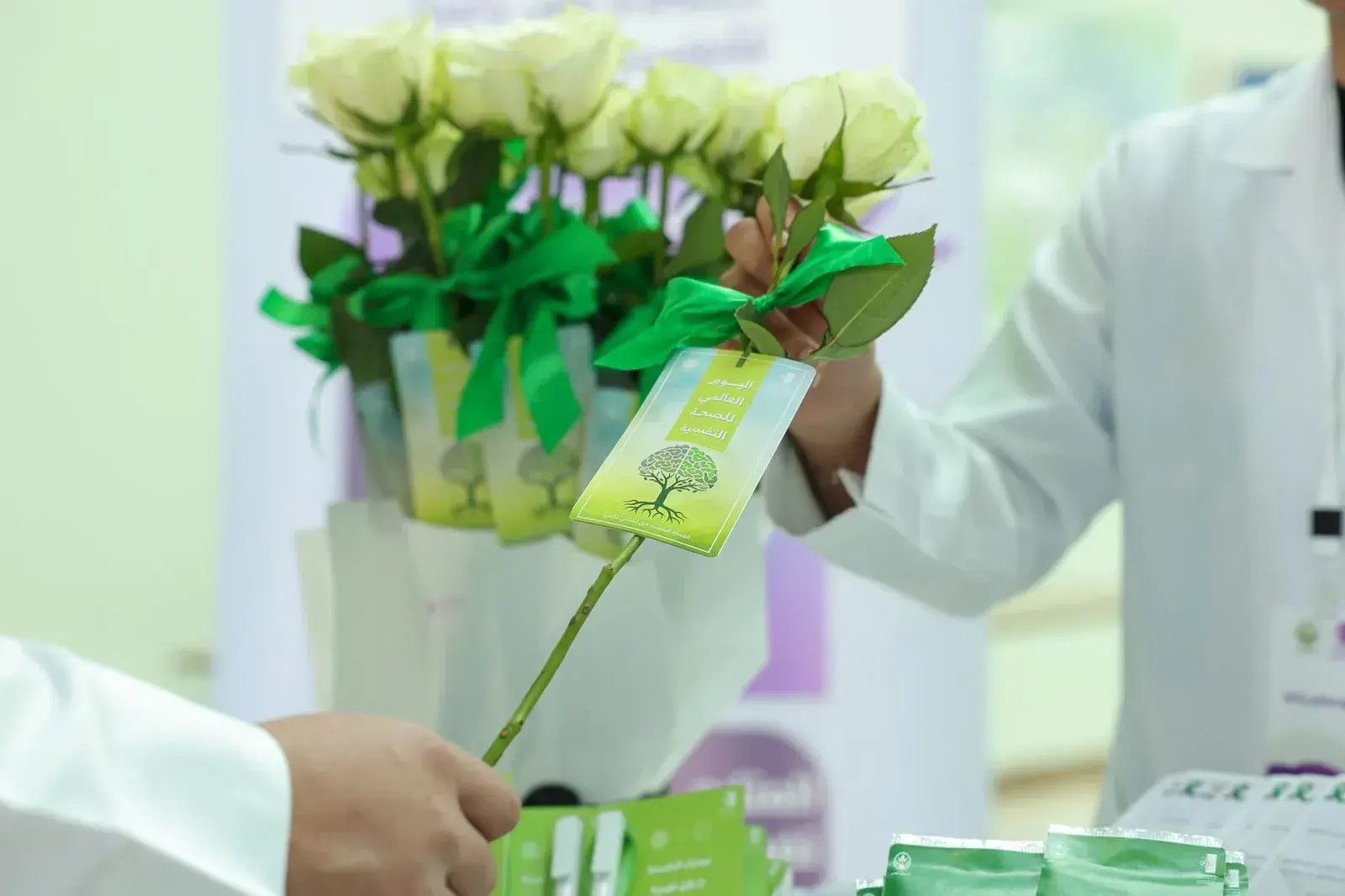Jouf University Celebrates World Mental Health Day with Unique Events Promoting Awareness and Enhancing Quality of Life
As part of its commitment to creating a psychologically safe and healthy educational environment, Jouf University celebrated World Mental Health Day through a rich program of awareness and training activities. The events were organized in collaboration with the Prince Nawaf bin Abdulaziz Chair for Sustainable Development, the Intellectual Awareness Administration, and the Colleges of Education, Medicine, and Pharmacy, alongside the University Counseling Unit and the Deanship of Student Affairs. The initiative underscores the university’s dedication to empowering students and staff with essential psychological and life skills for academic, professional, and social success.
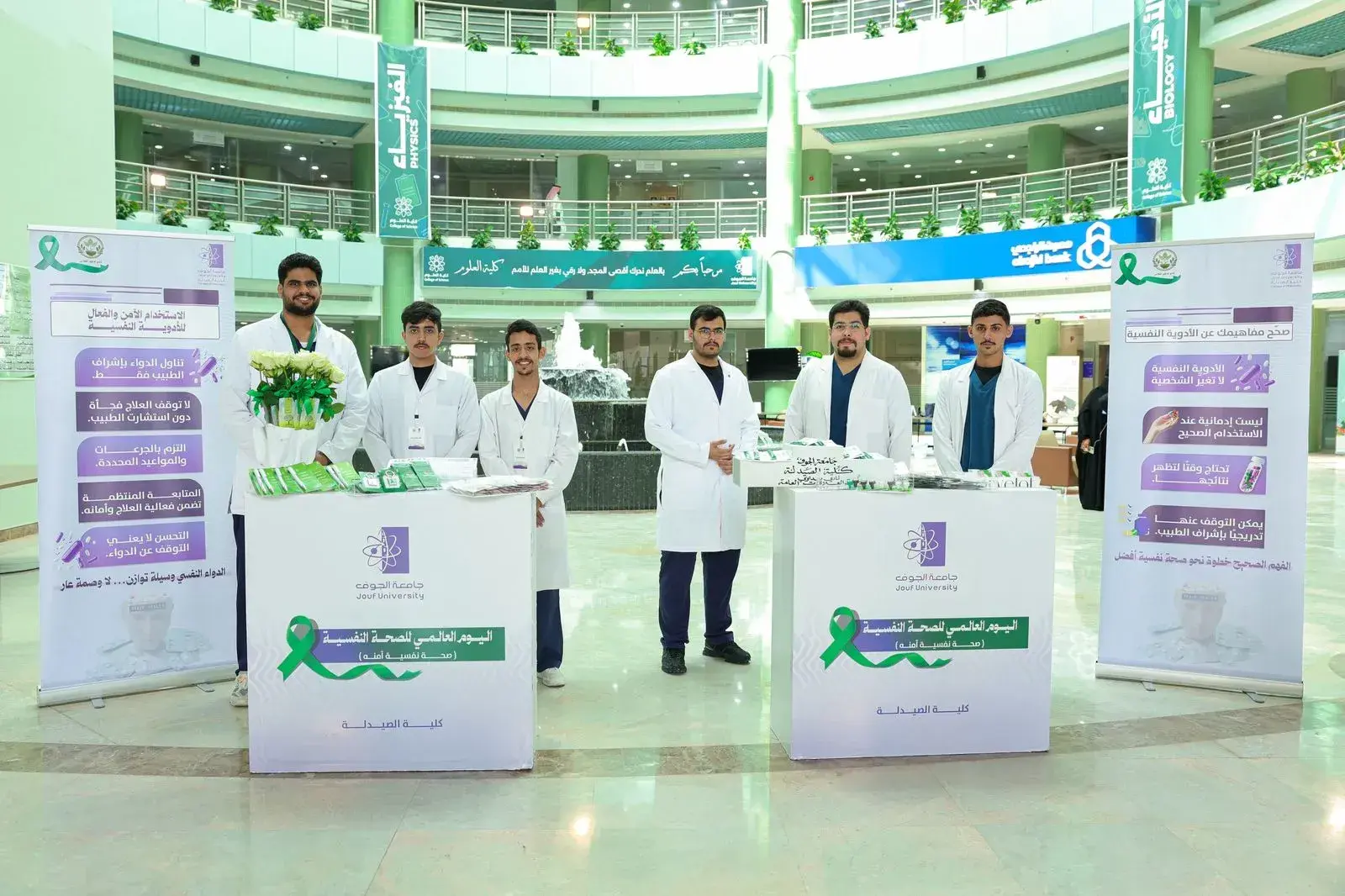
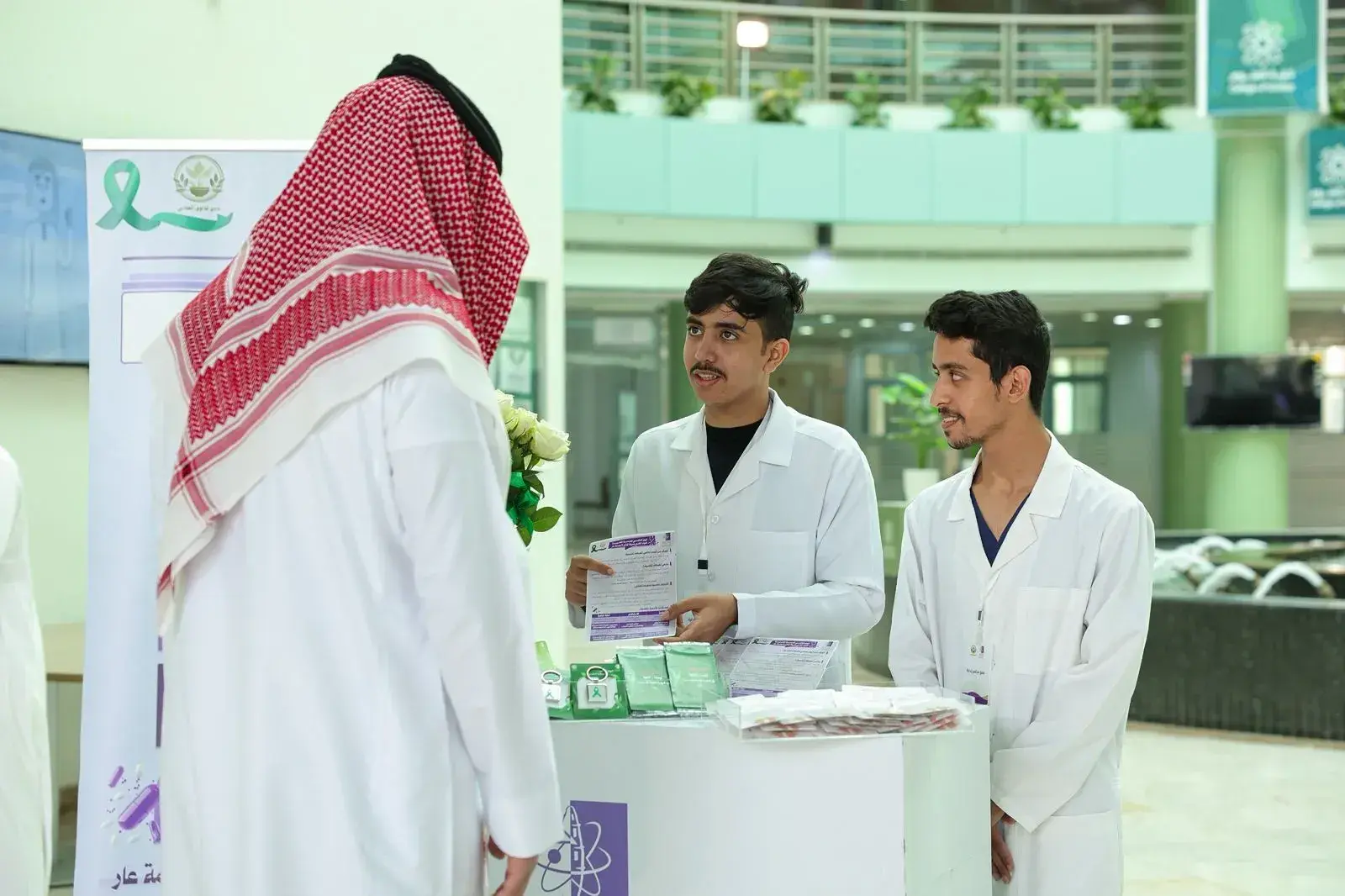
The celebration featured an accompanying exhibition with participation from various colleges and relevant departments. The exhibition highlighted the university’s initiatives in the field of mental health, including support and referral programs, counseling services, awareness platforms, and educational materials on stress management, prevention of common disorders, safe use of psychiatric medications, and life-skills development among students.
The program also included a panel discussion addressing key themes in psychological awareness, such as:
- Common psychological disorders and effective ways to deal with them.
- Stress management and life skills supporting psychological balance.
- Mental health as a pillar of sustainable development within and beyond campus.
- Safe use of psychiatric medications and promoting a culture of professional consultation and adherence to prescriptions.
The session featured distinguished faculty members and specialists including Dr. Abdullah bin Khalaf Al-Mutairi, Dr. Dhaifallah bin Maqham Al-Otaibi, Dr. Yasser bin Saud Al-Ruwaili, and Dr. Sami bin Ibrahim Al-Zarea, and was moderated by Mr. Zaid bin Mazid Al-Ruwaili. Participants emphasized the importance of integrating scientific awareness with counseling services and university policies to foster a compassionate and motivating learning environment.
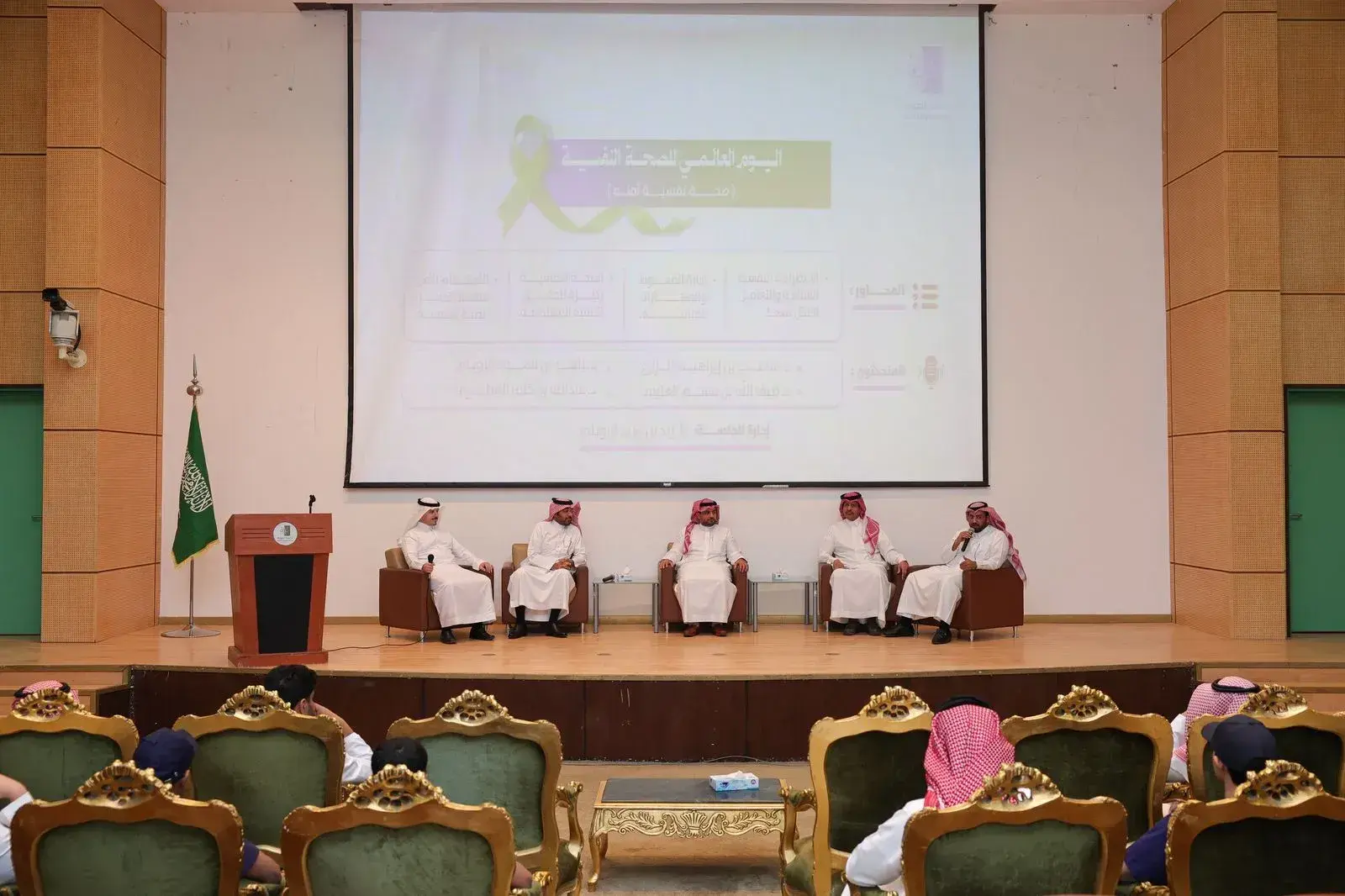
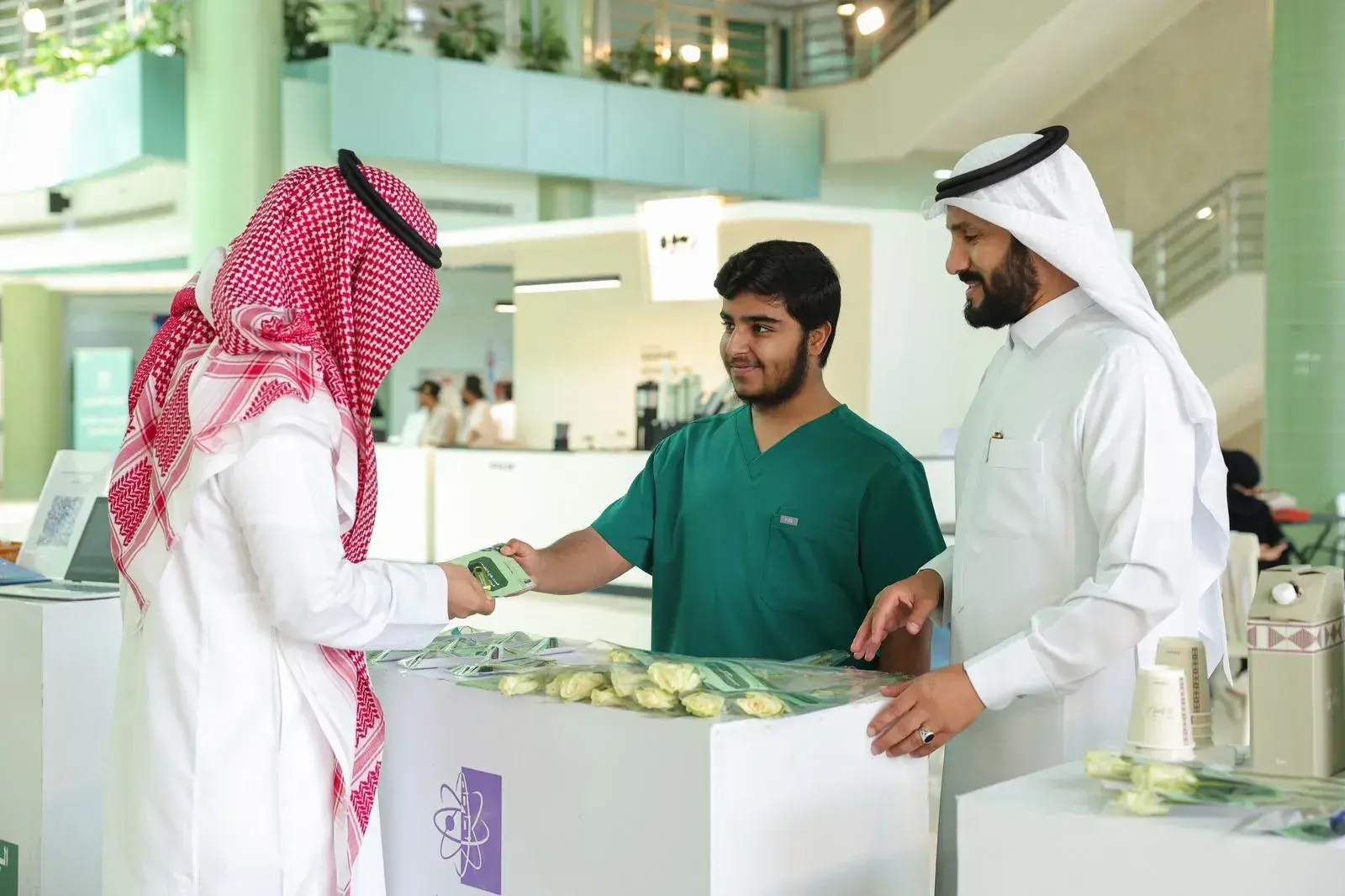
The program continued with a series of educational and practical workshops, presented by Dr. Ahoud bint Abdulrahman Al-Dughmi (Supervisor of the University Counseling Administration), Dr. Khawla bint Khalifah Al-Masaar, Dr. Sanabel Hasan Fadel, Dr. Amal Mohammed Asran, and Dr. Rasha Mohammed Kamal Abdel-Baqi, covering topics such as:
- The university’s role in enhancing students’ mental and social well-being.
- Psychological first aid: early intervention and psychological support in emergencies.
- Healthy coping with crises and self-management.
- Turning crises into opportunities for personal growth and resilience.
- “Your mental wellness is your right and responsibility”: fostering a culture of prevention and help-seeking.
In his speech, His Excellency Prof. Mohammed bin Abdullah Al-Shaya, President of Jouf University, affirmed the university’s keenness to provide an ideal, supportive environment that promotes mental health, embraces individuals, and empowers them as the foundation of creativity and excellence. He emphasized that the university adopts a holistic approach to mental health—combining awareness, prevention, treatment, and empowerment—through innovative initiatives that foster balanced health awareness among all members of the university community.
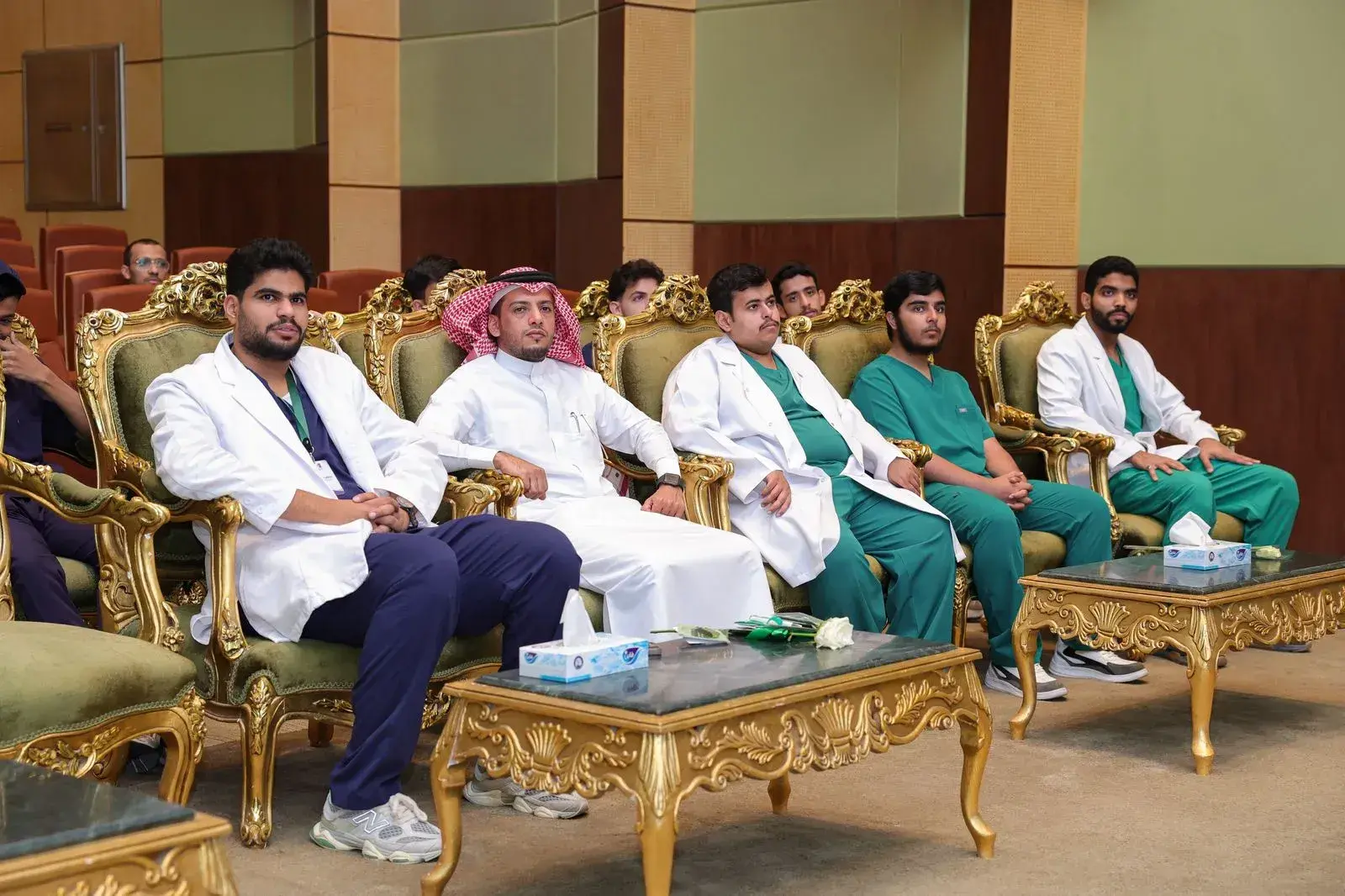
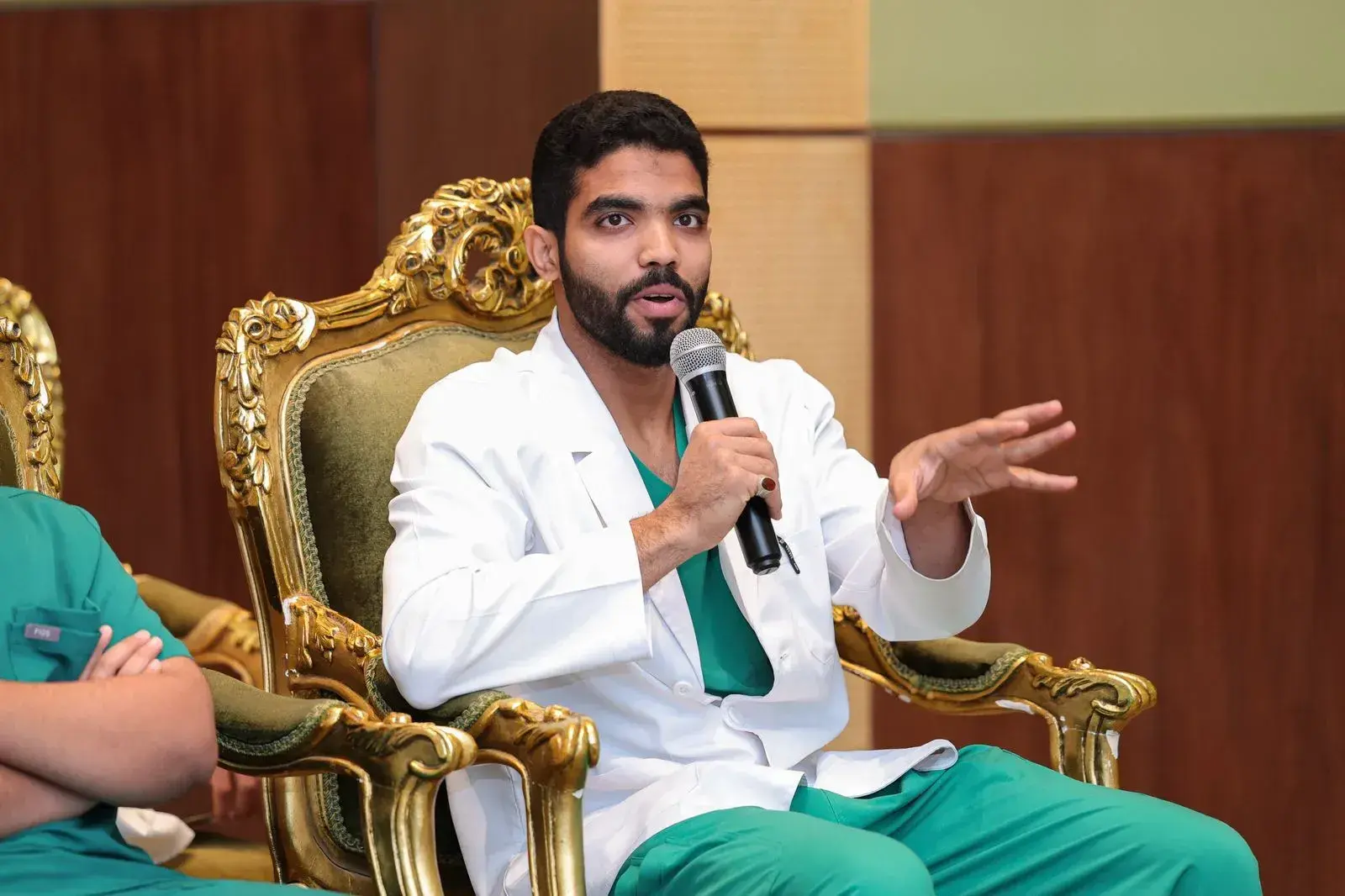
He added: “The integration of efforts between the Prince Nawaf bin Abdulaziz Chair for Sustainable Development, the Intellectual Awareness Administration, and the Colleges of Education, Medicine, and Pharmacy, along with the University Counseling Unit and the Deanship of Student Affairs, reflects the university’s vision of institutional collaboration and sustainable internal partnerships. This allows us to move from awareness to impact, and from initiatives to policies.”
These events align with Jouf University’s strategic goals in the areas of human empowerment and enhancement of university life quality, as well as with the targets of Saudi Vision 2030, particularly the Quality of Life Program, Human Capability Development Program, and Health Sector Transformation Program.
The initiatives aim to:
- Empower students by building psychological and life skills that enhance autonomy, mental flexibility, and academic success.
- Promote university life quality through comprehensive preventive, therapeutic, and counseling programs.
- Support social innovation through the Prince Nawaf bin Abdulaziz Chair by transforming psychological knowledge into sustainable community initiatives.
- Align with Vision 2030 programs: contributing to Quality of Life (well-being and mental health), Human Capability Development (coping and lifelong learning skills), and Health Sector Transformation (prevention and integrated care).
